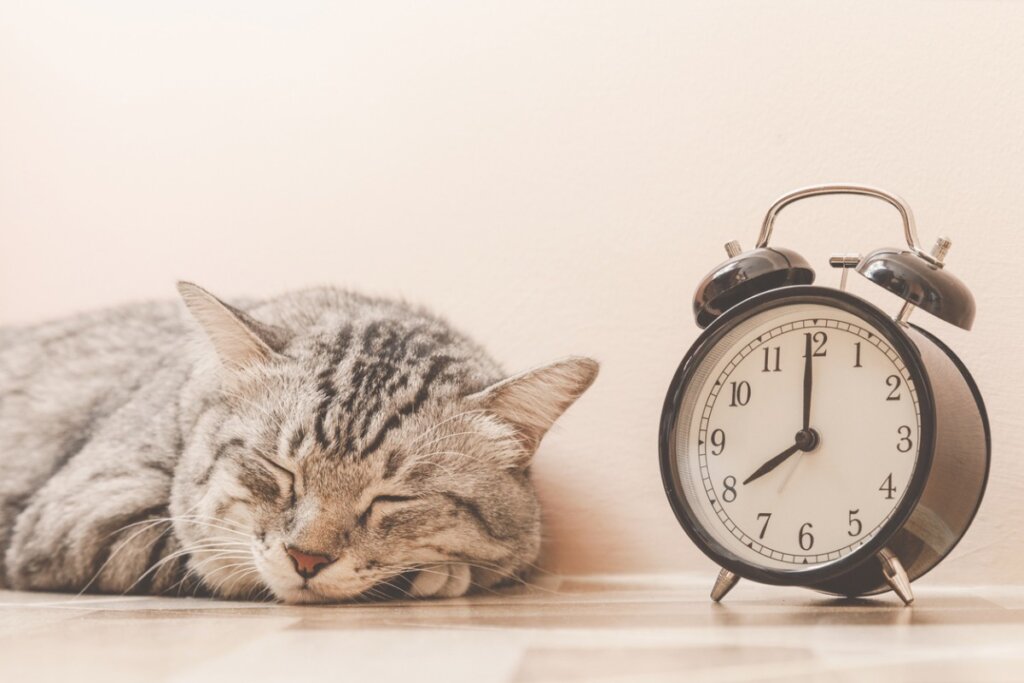10 Tips to Improve and Prolong Your Cat's Life

Pets are wonderful companion animals. If you have a cat as a pet or want one to be part of your family, it’s important for you to get to know some basic care tips that will help you prolong your cat’s life.
Like all pets, cats need constant care. Their reputation of being “independent” has meant that many owners have paid the necessary attention to several key aspects of their cat’s life. Continue reading if you want to get to know some useful tips to look after and help to prolong your cat’s life.
1. Take your cat to the vet
To prolong your cat’s life, it’s essential that you take them to the vet regularly. This will keep your cat up to date with all necessary vaccinations and medications, and will also help you discover health conditions early on, if any should occur. Take your cat to see the vet every year, or immediately if they’re sick, injured, or develop any alarming symptoms, such as an allergy.
You need to find a doctor you can trust, so take your time. Remember, having a good relationship with your vet makes appointments (which are often stressful for cats) much easier. Plus, it’s a much easier procedure when the vet already knows the “patient” and its medical history.
2. Feed your feline high-quality food
The American Society for the Prevention of Cruelty to Animals (ASPCA) recommends buying high-quality cat or kitten food. With this goal in mind, a veterinarian will be able to evaluate your cat and determine the best diet. Factors such as age, activity level, and health make a difference in choosing what, and how much, a cat should eat.
It’s imperative that your feline’s food should contain taurine, an amino acid essential for heart and eye health.
In addition to solid nutrition, you’ll need to provide your cat with clean, fresh water at all times and wash and refill bowls every day. If you can provide access to a water fountain that keeps the liquid fresh, even better. Also, keep in mind that treats should make up no more than 5-10% of the diet.

3. Make sure you don’t have plants that are toxic to cats
Some plants are beneficial to cats, but some are harmful to their health. It’s important for you to look into this topic, and that, in addition to plants, you get to know which human foods are prohibited in the feline diet.
The autumn daffodil (Colchicum autumnale) and vegetables of the genus Amaryllis are just a few examples. Be well informed and detect all toxic plants for your cat in the home environment.
4. Keep your cat indoors
Professional sources say that indoor cats live longer and healthier lives than those who venture outdoors. If you want to extend your cat’s life, consider this fact: indoor cats live 10 to 15 years, while outdoor cats survive an average of 2 to 5 years.
Having an indoor life for your feline has its pros and cons, just like having access to the outdoors. One of the benefits is that your cat will be protected from environmental hazards and, if you provide adequate environmental enrichment, will have nothing to envy in outdoor life.
Some cats who have access to the outdoors are hit by vehicles, injured by other cats, attacked by dogs or predators, infected with deadly diseases, lost and poisoned, among other consequences. Also, keep in mind that their own activity harms native wildlife, so it’s never a good idea to let your cat roam freely.
5. Enrich the environment so that your feline can live happily
Beyond having a clean, dry place to sleep and rest, your cat must have an environmental enrichment appropriate to its feline nature. To achieve this, provide places where they can scratch, adequate vertical spaces to climb, and toys that stimulate their hunting instinct, among other points.
To help your cat scratch other surfaces than your furniture, provide them with a sturdy scratching post at least 90 centimeters (35 inches) high that won’t move when they use it. In addition, spots to interact with nature, such as a comfy seat at the bottom of the window, are also recommended.
6. Play with your cat every day
In addition to helping them stay slim, exercise and play also prevent stress, resulting in a happy, healthy feline. That’s because cats need to perform their typical behavior of hunting, jumping, and interacting, and play allows them to tap into their natural instincts.
It’s important to keep in mind when it comes to playing, that cats are predators in the wild. If you use something like a laser to play with yours, be sure to give it a tangible object to “kill” and “eat” at the end of the chase. Toy mice are often a feline favorite, along with different types of balls.
7. Neuter your cat
It’s recommended that cats be spayed or neutered at 5 months of age. This procedure reduces the abandonment of animals and prevents diseases, and, in that way, you’ll be able to prolong your cat’s life.
8. Brush your cat constantly
Most cats stay clean and only need a bath when it’s absolutely necessary, but, for this to apply, you must brush or comb your cat regularly. In this way, you’ll keep their coat clean, reduce the amount of shedding, and reduce hairballs.
Regular brushing, in addition to keeping your cat’s coat shiny, also allows you to familiarize yourself with your cat’s body and recognize any changes in shape or texture immediately. If you notice any new lumps, bumps, or sore spots, you should consult your vet.
9. Clean the litter box every day
All indoor cats need a litter box that should be placed in a quiet, accessible location. In a multi-level house, one per floor is recommended. Keep in mind that your cat won’t use a dirty and smelly litter box, so you should change the substrate every day.
It’s advisable to clean the box thoroughly at least once a week or month (if you use clumping litter) by emptying it and washing it with a mild detergent. Don’t use ammonia or scents (especially lemon) to clean the litter box.
Cleaning the litter daily will allow you to immediately notice any changes in your cat’s urine or stools.
10. Put an ID collar on your cat
If you allow your cat to go outdoors, it’s important to wear a safety collar with an identification tag. A stretchy one will allow your feline to get loose if it gets caught in something. An implanted microchip can also help ensure that your cat is returned if they get lost.

To prolong your cat’s life and maintain their well-being, it’s crucial that you take into account the most basic and simple care that every cat should enjoy. Your cat will be with you for many more years than you think if you start applying these basic tips.
All cited sources were thoroughly reviewed by our team to ensure their quality, reliability, currency, and validity. The bibliography of this article was considered reliable and of academic or scientific accuracy.
- ASPCA. (s. f.). General Cat Care. Recuperado 6 de diciembre de 2021, de https://www.aspca.org/pet-care/cat-care/general-cat-care
- Clinical Animal Behavior Service. (s. f.). Cats: Indoors or Outdoors? Recuperado 6 de diciembre de 2021, de https://www.vetmed.ucdavis.edu/sites/g/files/dgvnsk491/files/inline-files/Cats-Indoors_or_Outdoors.pdf
- PetMD Editorial. (2020, 14 octubre). 11 Ways to Help Your Cat Live Longer. PetMD. Recuperado 6 de diciembre de 2021, de https://www.petmd.com/cat/slideshows/11-ways-help-your-cat-live-longer#slide-1